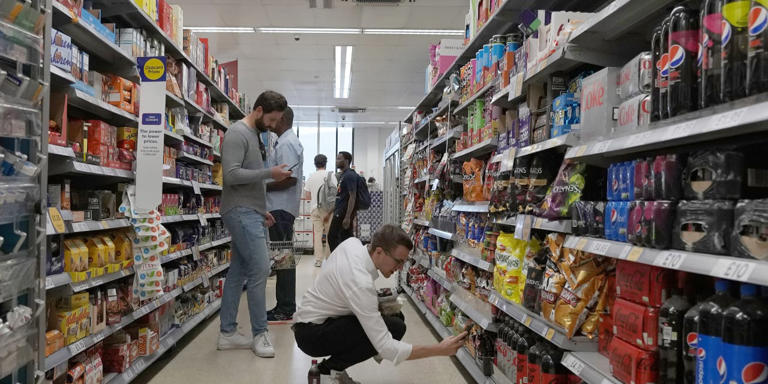In February, the United Kingdom witnessed a significant easing in price rises, surpassing expectations and fueling speculation that the Bank of England might initiate interest rate cuts in the coming months.
According to data released by the Office for National Statistics (ONS), the consumer price index indicated that inflation dropped to 3.4% in February, marking its lowest level since September 2021, down from 4% recorded in January. The ONS attributed much of this decline to a moderation in food price inflation, which exerted downward pressure on overall inflationary pressures. This decline surpassed analysts’ forecasts, who had anticipated a more modest decrease to 3.6%.
The reaction in financial markets was notable, with the yield on the 2-year gilt falling by 10 basis points to 4.19%, and the British pound declining against the US dollar, from $1.2723 to $1.2696.
Although inflation remains above the Bank of England’s target of 2%, the downward trajectory signals a potential shift in monetary policy. The Bank of England’s Monetary Policy Committee (MPC) is widely expected to maintain the main interest rate at 5.25% during its upcoming meeting. However, there is growing anticipation that policymakers may soon consider easing monetary policy to support economic recovery.
Kallum Pickering, senior economist at Berenberg, highlighted the Bank of England’s inclination to ease its monetary stance in response to economic stagnation following the energy supply shock in 2022. Lowering interest rates could help bolster the nascent recovery by reducing borrowing costs and stimulating spending.
The minutes from the Bank of England’s meeting will be closely scrutinized to gauge policymakers’ sentiments regarding potential interest rate cuts and their implications for mortgage rates. Suren Thiru, economics director at the Institute of Chartered Accountants in England and Wales, characterized the notable decline in inflation as a sign that the UK is nearing the end of its battle against surging price pressures.
The Bank of England, following the footsteps of other central banks worldwide, had raised interest rates aggressively in late 2021 to counter inflationary pressures exacerbated by supply chain disruptions and geopolitical tensions. However, the recent moderation in inflation suggests that these measures have begun to take effect, prompting discussions about potential interest rate adjustments.
Against the backdrop of falling inflation and the possibility of lower interest rates, Britain’s Conservative Party hopes to capitalize on the economic sentiment ahead of the upcoming general election. However, opinion polls indicate a significant lead for the opposition Labour Party, underscoring the political dynamics at play amidst shifting economic conditions.
